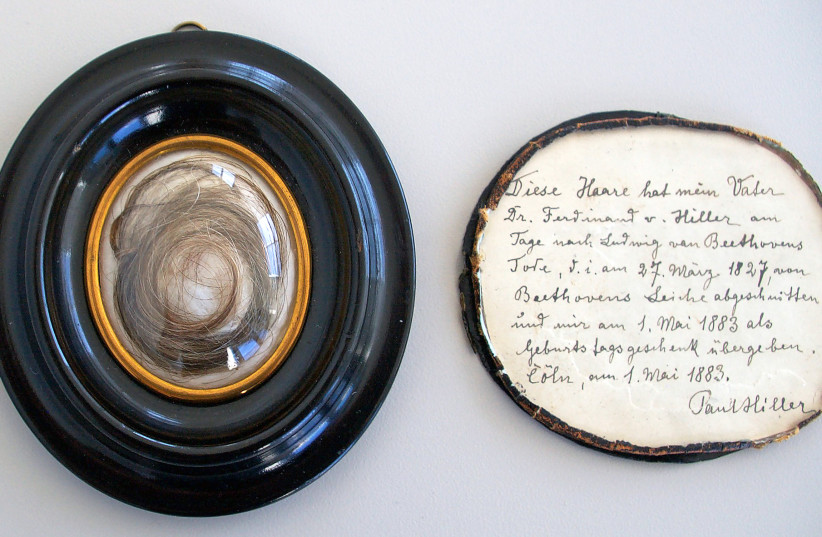Classical composer Ludwig van Beethoven is considered one of the most important musicians of all time, yet for centuries the cause of his untimely death has remained a mystery.
New research published on Wednesday in the peer-reviewed journal Current Biology sheds light on how the legendary composer, who suffered hearing loss at a young age leading to his complete deafness, yet was still able to compose masterpieces of music, ultimately died at age 56.
To uncover the cause of Beethoven's death in 1827, researchers analyzed DNA they pieced together from separately sourced locks of his hair. Researcher Johannes Krause from the Max Planck Institute for Evolutionary Anthropology in Germany explained that rather than learn about the cause of death, the team originally set out to discover what caused the musician to lose his hearing beginning around age 28.
“Our primary goal was to shed light on Beethoven’s health problems, which famously include progressive hearing loss, beginning in his mid-to-late-20s and eventually leading to him being functionally deaf by 1818,” said Krause.
“We were unable to find a definitive cause for Beethoven’s deafness or gastrointestinal problems,” Krause continued.

Instead, the team learned what led to the composer's passing.
“However, we did discover a number of significant genetic risk factors for liver disease," Krause said. "We also found evidence of infection with hepatitis B virus in, at the latest, the months before the composer’s final illness. Those likely contributed to his death.”
The research team analyzed locks of hair attributed to Beethoven, only five of which they confirmed came from the same European male, with German roots. They regarded these five to be “almost certainly authentic” and used them to string Beethoven’s genome to 24-fold genomic coverage.
Isn't it commonly thought that Beethoven died of lead poisoning?
According to the new findings, previous research indicating that Beethoven had lead poisoning, which killed him, turned out to have been based on a sample that wasn’t Beethoven’s at all. In fact, the sample actually came from a female.
What other mysteries did the researchers discover about Beethoven's past?
In addition to answers about Beethoven's death, by analyzing DNA, the team made some shocking discoveries about his life as well, including a likely "extramarital event” somewhere over the generations on Beethoven’s paternal side. Researchers said Beethoven’s Y chromosome doesn’t match any of the modern-day relatives carrying the same last name and sharing, on the basis of genealogical records, a common ancestor with Beethoven’s father's side.
“This finding suggests an extrapair paternity event in his paternal line between the conception of Hendrik van Beethoven in Kampenhout, Belgium in c.1572 and the conception of Ludwig van Beethoven seven generations later in 1770, in Bonn, Germany,” said study co-author Tristan Begg who conceived the idea to study Beethoven years ago after learning that before his death, the musician requested that his doctors study his illness postmortem and make the findings public.
Researchers were unable to find in Beethoven's genome an explanation for his hearing loss or gastrointestinal issues, but they did find that he was genetically predisposed to liver disease, which they said could be related to his well-known alcohol consumption.
The team expressed hope that more of Beethoven’s samples will be collected over time and could assist in clarifying more information about his hepatitis B infection, such as when he became ill. Meanwhile, further analysis of his close relatives might explain his relationship to modern-day decedents of the Beethoven family.
